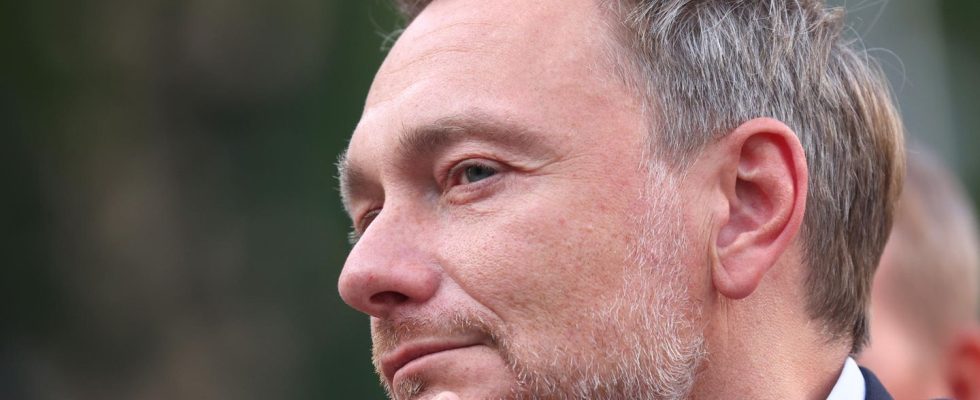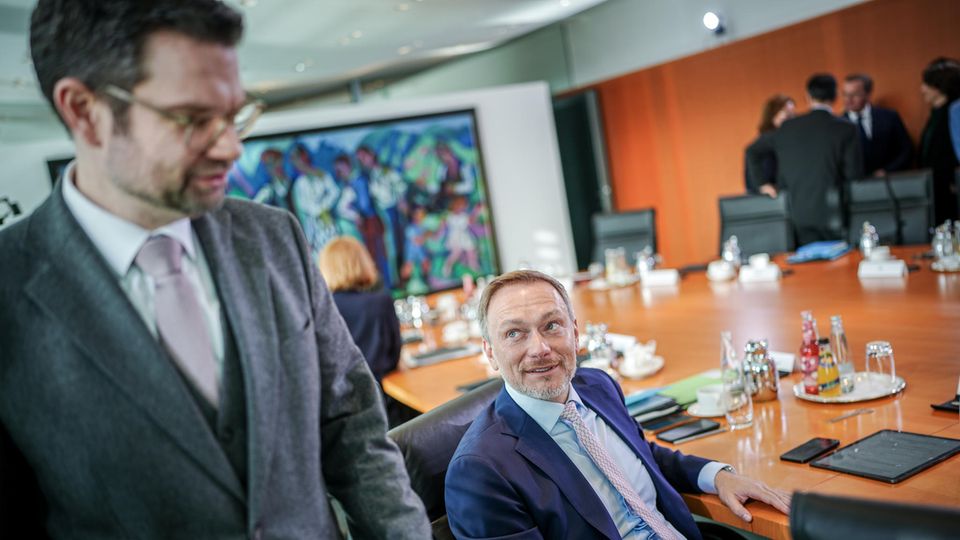Opinion
Supply Chain Act
Blockade in Brussels: The FDP’s Victor Orbán strategy
FDP leader Lindner: Without him, practically nothing works in Brussels
© Karl-Josef Hildenbrand / DPA
Like a whining child, the FDP is currently blocking one European law after another. And the Chancellor? Let it happen.
The issue is whether European companies will have to take responsibility for environmental and human rights violations in their value chains in the future. And whether they will be liable for damages in the future.
In fact, people in Brussels are increasingly asking themselves who is in charge of the federal government’s fortunes. It doesn’t seem to be Olaf Scholz. One bill after another is currently failing due to German blockades, and in Brussels the only answer is “German Vote”. What is meant is the FDP, which is once again stonewalling. The Liberals are actually junior partners in the coalition surrounding the Social Democratic Chancellor. But they have understood like no other party how suitable legislative projects in Brussels are for pushing through their own goals or even just keeping themselves in the conversation.
The dispute over the combustion engine started
In the beginning there was the combustion engine, and the FDP was still laughed at. It was March 2023, and the end of the combustion engine by 2035 had actually been decided at the European level. The trilogue negotiations between Parliament, Council and Commission had long since concluded. But before the final council vote, which was actually a formality, the FDP suddenly blocked it. The vote was postponed and the FDP was promised a small exception for e-fuels in Brussels. The combustion engine ended after all. And the FDP learned what Victor Orbán also knows how to use so well for himself: If you are bitchy in Brussels, you can at least get small concessions.
Now, a year later, the Liberals can no longer be fobbed off with small exceptions, and the supply chains are just one example of many: CO2 limits for trucks, platform work, packaging regulations; again and again, votes on texts that have already been negotiated are shaky due to a change of heart on the part of the FDP. With every small success, even if it is just the collective media interest, the party goes one step further. In the case of supply chains, Justice Minister Marco Buschmann even sent a collective letter to the member states explaining why they should vote against the law. The party has engaged in horse trading with Italy. If Rome stops the supply chains, then Berlin will help block the packaging rules.
The FDP is already setting the tone for the coming European elections. The credo is: away from coalition-related compromises that weaken the Liberals’ profile. Towards a policy that is as industry-friendly as possible. The FDP’s stunts are clearly effective in the media. Not a day goes by without the FDP blockade being the subject of editorials, protests or comments. This included.
Where is the Chancellor?
The power of the German associations in Brussels is more noticeable than ever. Most recently, CDU Commission President Ursula von der Leyen repeatedly dropped important laws that were viewed particularly critically by influential lobbies. For example, it rejected the planned reforms on dangerous chemicals and sustainable pesticides and suspended the mandatory fallow period for 2024 after the strong farmers’ protests in recent weeks.
The increasingly industry-friendly policies have now given her the top candidacy of the Conservatives. However, it may need a right-wing conservative to right-wing majority to achieve this. With its behavior, the FDP is clearly sending the signal that the Liberals would rather go along with it than pacify a green-socialist coalition.
What is striking is that the FDP is particularly hijacking those legislative projects that should actually serve as flagships of the European socialists. The law surrounding platform work, for example, should be part of the legacy of Social Commissioner Nicolas Schmit. He is running in the European elections in June as the Socialists’ leading European candidate. But last week his bill failed in the council. The supply chain law also goes back to a demand from the socialists in the European Parliament. Germany committed itself to European law in the coalition agreement, but now it is in jeopardy.
And yet the SPD can’t seem to find clear words or actions to keep the coalition’s junior partner in check. Olaf Scholz, who as Chancellor was supposed to hold his coalition together, remains largely silent. In any case, his shadow doesn’t reach Brussels. That of his junior partner even more so.



